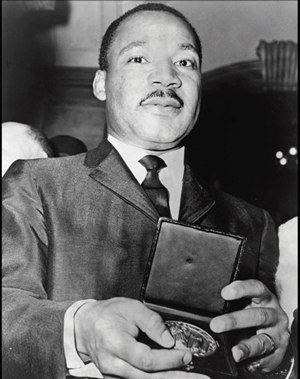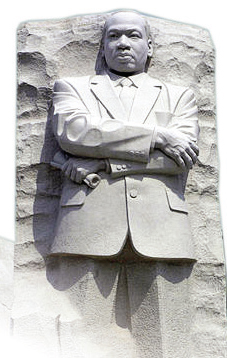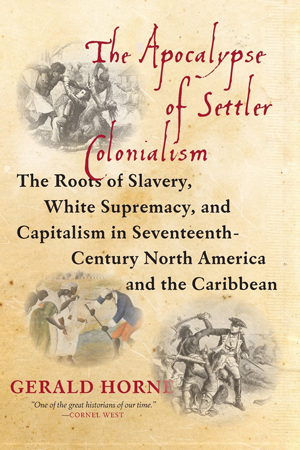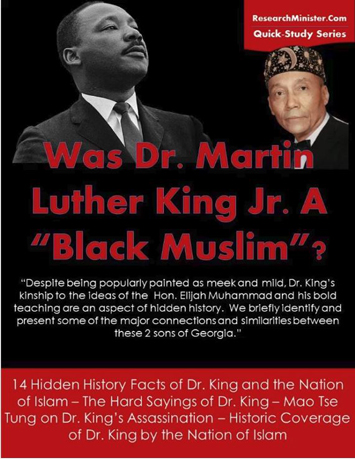Further from the Dream than ever?
By Barrington M. Salmon -Contributing Writer- | Last updated: Apr 11, 2018 - 9:24:28 AMWhat's your opinion on this article?

|
In too many spaces where Black people reside, she said, Dr. Martin Luther King, Jr.’s dream of justice, social and economic equality, fairness and lives free from racial animus are far-off goals.
Ms. Hunt has lived in the Washington metropolitan area for 34 years.
“From a social justice perspective, Dr. King would be discouraged. We’re under siege—it’s like the Reconstruction Period all over again. We had the nerve to aspire to the highest office in the land and now we’re paying for it,” she said.
“We’ve gone backwards and we don’t seem to have the same fortitude as Black people in the past. It’s almost as if we’re afraid. We’re tippy toeing around, scared and being made to feel that what we truly think and express is radical. Luckily, young people are leading us.”
When the nation’s voters elected Barack Hussein Obama president in 2008, political pundits and experts declared his ascension to America’s highest office was a sure sign that the U.S. was “post-racial.” But throughout his two terms, and even moreso since his successor took office, pervasive racial animus and overt hostility is irrefutable evidence of the deep divide between Blacks and Whites and a cancer that continues to spread.
For the 13 months since he entered the White House, Donald Trump has prided himself on being the “chaos’ president. He has insulted President Obama routinely, called Black football players who dared, kneel or sit during the National Anthem in protest of inequality and police brutality “sons of bitches.” And he has verbally abused a succession of Black women, including Reps. Maxine Waters and Frederica Wilson as well as former National Security Advisor Susan Rice and sportscaster Jemele Hill.
Critics say Trump’s policies and executive orders are racist, discriminatory and steadily eroding hard-earned civil rights and other economic, political and judicial gains.
His attorney general has relaxed the monitoring and investigation of police brutality and instructed prosecutors to impose the toughest penalties wherever they can.

|
Most social measures and indicators, research and studies show Blacks lag far behind Whites, are more prone to illness and chronic diseases like obesity, diabetes and high blood pressure; are last hired and first fired; and when compared to Whites without a college education, for example, Blacks with a college degree still earn less income, have less social mobility and garner considerably less wealth. Whether it’s life expectancy, earning potential, sentencing, arrests or incarceration, Blacks don’t fare well either.
According to the Census Bureau, Black families in America earn $57.30 for every $100 in income earned by White families. Meanwhile, for every $100 in White family wealth, Black families hold just $5.04. White households, on average, have 10 times more wealth than Blacks.
In a New York Times story detailing a 2017 Yale study, researchers found Americans and higher-income Whites, in particular, vastly overestimate progress toward economic equality between Blacks and Whites. Also they said, Americans believe that Blacks and Whites are more equal today than they truly are on measures of income, wealth, wages and health benefits. And they believe too, that more historical progress has occurred than is the case, suggesting “a profound misperception of and unfounded optimism” regarding racial equality.
The Rev. Dr. William J. Barber, II, asserts that President Trump is not the problem, but is a symptom of America’s moral sickness. America, he has said often, is in the midst of a Third Reconstruction.
“We’re witnessing a fundamental changing of our demographics around the world,” said Rev. Barber, former president of the North Carolina NAACP and president and senior lecturer of Repairers of the Breach during a speech in January. “We see extremist policies in America today and it’s driven by the growing blackening and browning of America and a fusion of every creed, color and class.”
“Those who embrace the Make America Great Again slogan are willing to work hard and cheat to undermine what is evolving in America,” said Rev. Barber. “This is White hegemony and White nationalism strengthened by enormous wealth.”
“We are getting farther away from actualizing Dr. King’s dream. Men lie, women lie, but numbers don’t lie,” said Rev. Kyev Tatum, president of the Fort Worth Southern Christian Leadership Conference. “If you look at in 1968, those sanitation workers were striking for three reasons: One, they were making 70 cents per hour. Two, they were being called boy, instead of being called a man; and three, the working conditions was so unsafe that men were being tossed inside and behind their trucks and dying because no one in the city said anything. Fast forward to 2018 … we’re still seeing issues where African Americans, especially men in Fort Worth, making less than 33 cents on the dollar, the highest unemployment rate since slavery when we had free labor,” he added.
“Dr. King’s dream has turned into a nightmare,” said Student Minister Abdul Sharrieff Muhammad of the Nation of Islam in Atlanta. “Atlanta as we speak right now is a nightmare. Not only is the unemployment rate high, but when you drive down MLK Avenue, all you see is homeless people.”
Ms. Hunt said she recently watched a clip of Dr. King where he talked about the disadvantages enslaved Blacks faced when they were emancipated.
“He was saying that when we came out of slavery, Whites got millions of acres and Black people got nothing,” she said. “The ex-slaves were freed with nothing, no land, no 40 acres and a mule, no resources. What he said was so relevant that it could have been said last night. Today, it’s the same old bullshit. We know he got killed for illuminating issues of poverty.”
“I would argue that racism was an instrument used as a way of oppressing us and keeping poor White people disorganized,” said labor organizer and activist Bill Fletcher, Jr., former president of TransAfrica Forum and a senior scholar with the Institute for Policy Studies.
“Racism is important for White people. It misleads them in terms of what they’re told the source of their problems are,” he said. “Hopefully over time White people will appreciate moral appeals, but we have to win by them by showing how they’re also getting screwed over by the system. Trump won every category of Whites.”
Mr. Fletcher and educator Dr. Gerald Horne credit sustained and systematic repression against Blacks from the federal government with blunting and almost destroying Black forward progress.

|
“The internationalist Paul Robeson was beaten in submission. They chopped down the tallest tree and left all the smaller trees frightened,” said Dr. Horne, whose latest book is titled, “The Apocalypse of Settler Colonialism: The Roots of Slavery, White Supremacy, and Capitalism in Seventeenth-Century North America and the Caribbean.”
“Our community utilizes a lot of bluster to obscure and hide the fear we have. I think there are little pockets of activity but we need big pockets,” he said.
Mr. Fletcher agreed and echoed Dr. Horne’s comments about the federal government targeting Black leaders. “There was repression—our leaders killed and organizations destroyed,” he said. “We thought we had won. We looked at victory as a permanent state of affairs. We have to fight and always fight or those victories will disintegrate.”
Despite the litany of woes Blacks endure, Mr. Fletcher, who said he’s a socialist, is “cautiously optimistic” about Blacks attaining Dr. King’s dream.
Stephon Clark and Saheed Vassell have joined the roll of Blacks killed by police, along with Korryn Gaines, Alton Sterling, Natasha McKenna, Philando Castile, Meagan Hockaday, Walter, Scott, Eric Garner, Tamir Rice, Gabriella Nevarez and Rekia Boyd and almost countless others.
In almost every case, the cops involved were not indicted or charged.
“Part of the reason we’re in such difficulty is because we don’t think globally,” said Dr. Horne. “A lot of our leaders don’t even have a passport. Also, we have no allies. Historically, we’ve had to depend on durable allies who disappear at the most inopportune moments.”
Dr. Horne said the times Blacks have had success, such as the 1954 Board v. Brown Supreme Court decision, the United States was under pressure to make some accommodations.
Ms. Hunt, Mr. Fletcher and Dr. Horne said young activists give them hope. “The Movement for Black Lives and the Dreamers have really been a shot in the arm. It’s been very inspirational,” Mr. Fletcher said. “A lot of people, Baby Boomer and Gen X’ers are beaten down then you see young people rising up.”
“I hope young people lead us, if not, our goose is cooked. Let’s hope, too, that the Resistors are successful in 2018 or 2020,” he concluded with a wry chuckle.

|
Demetric Muhammad, author of “Was Dr. King a Black Muslim,” says Dr. King’s message was reduced to a dream because Dr. King had revolutionary ideas that America’s leaders feared.
“And in 1966, Dr. King met with the Honorable Elijah Muhammad in February, and that signaled that he was leaving his commitment to ‘white liberal ideas’ and solutions,” argued Demetric Muhammad.
So, here’s a man, said Demetric Muhammad, that was supposed to be celebrating the signing of the Civil Rights Act, but he was melancholy, he was despondent, he was reflective and pensive.
“We achieved the greatest thing we could ever achieve when we elected a Black man for president for two terms. That was the greatest achievement that you could get from voting and yet in his eight-year term, our community regressed and not progressed,” said Demetric Muhammad
Many are beginning to open their eyes to the idea of separation, proposed by the Nation of Islam, he observed.
Look at the major cities in America where immigrants have settled, he said. They live inside these cities, but they have a dual-reality, one that is a part of American society and one that is separate from American society, continued Demetric Muhammad.
“These are the people who if you’ll notice they come to America, they’re not too particular about voting and politics,” he said. “They understand the power of unity and economics and they’ve realized that all they have to do is take a few families, move into a neighborhood, and in a few years, invite another family to move into that neighborhood, pool their resources. Open up a restaurant with the food they like to eat from their home country, open up a school and teach their culture, pool their resources and stop renting and buy property, and this is the immigrant model of separation.
“These are people that are getting more out of the American economy and American society than Black people have received for more than 400 years,” he concluded.
(Rhodesia Muhammad contributed to this report.)
INSIDE STORIES AND REVIEWS
-
-
About Harriett ... and the Negro Hollywood Road Show
By Rabiah Muhammad, Guest Columnist » Full Story -
Skepticism greets Jay-Z, NFL talk of inspiring change
By Bryan 18X Crawford and Richard B. Muhammad The Final Call Newspaper @TheFinalCall » Full Story -
The painful problem of Black girls and suicide
By Charlene Muhammad -National Correspondent- » Full Story -
Exploitation of Innocence - Report: Perceptions, policies hurting Black girls
By Charlene Muhammad -National Correspondent- » Full Story -
Big Ballin: Big ideas fuel a father’s Big Baller Brand and brash business sense
By Bryan Crawford -Contributing Writer- » Full Story






 Click Here Stay Connected!
Click Here Stay Connected!








